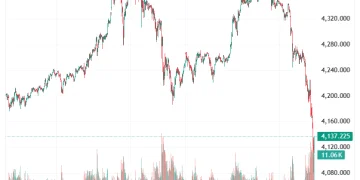Finance expert calls for longer-term IMF deal to tackle Ghana’s economic challenges
According to Prof. Williams Kwasi Peprah, an Associate Professor of Finance at Andrews University in the United States, Ghana’s thirty-six month extended credit facility deal with the International Monetary Fund (IMF) is insufficient to make a significant economic impact. He believes that the conditions and policy demands imposed by the IMF to address Ghana’s fiscal and debt vulnerabilities require a long-term approach. Prof. Peprah suggests that a five-to-seven-year fiscal program would be more viable for achieving an effective financial turnaround.
Speaking at a public lecture on the IMF bailout at the Christian Service University College in Kumasi, Prof. Peprah emphasized that the IMF deal would contribute to stability and financial discipline by the government. He stated that having the IMF monitor the country’s operations serves as a deterrent, prompting the government to adhere to proper financial practices. He also noted that the presence of the IMF leads to reduced inflation and a more stable economy.
Prof. Peprah expressed his concern that the three-year program with the IMF would not be sufficient to fully implement all the necessary policies and address the underlying issues. He stated that the policies are too drastic and require more time for effective resolution. He highlighted that even after the three-year program ends, Ghana’s debt-to-GDP ratio is projected to remain around 76%, which is still not considered financially stable.
The IMF extended credit facility of $3 billion was approved by the Executive Board on May 17, 2023, and aims to support Ghana in creating conditions for inclusive and sustainable growth. However, some sections of the Ghanaian population have raised concerns about the perceived harsh conditionalities associated with the deal.
In addition to Prof. Peprah’s remarks, Professor Joseph Magnus Frimpong, a Professor of Finance at the KNUST School of Business, also attributed Ghana’s challenging situation to wasteful behavior. He suggested that if someone is wasteful and wants to borrow money, they would likely face strict conditions to ensure repayment. Prof. Frimpong called for the government to review the free Senior High School policy and emphasized the need to address wastefulness at both the governmental and individual levels. He also highlighted the influence of partisan politics in hindering the implementation of effective solutions.
These remarks by Prof. Williams Kwasi Peprah and Prof. Joseph Magnus Frimpong indicate their belief that the three-year IMF deal may not be sufficient to address Ghana’s economic challenges comprehensively. They emphasize the need for longer-term programs and structural reforms to achieve financial stability and sustainable growth.








